Chamoon Hot Pot: Famous clear soup hot pot chain opens its first store in Orchard
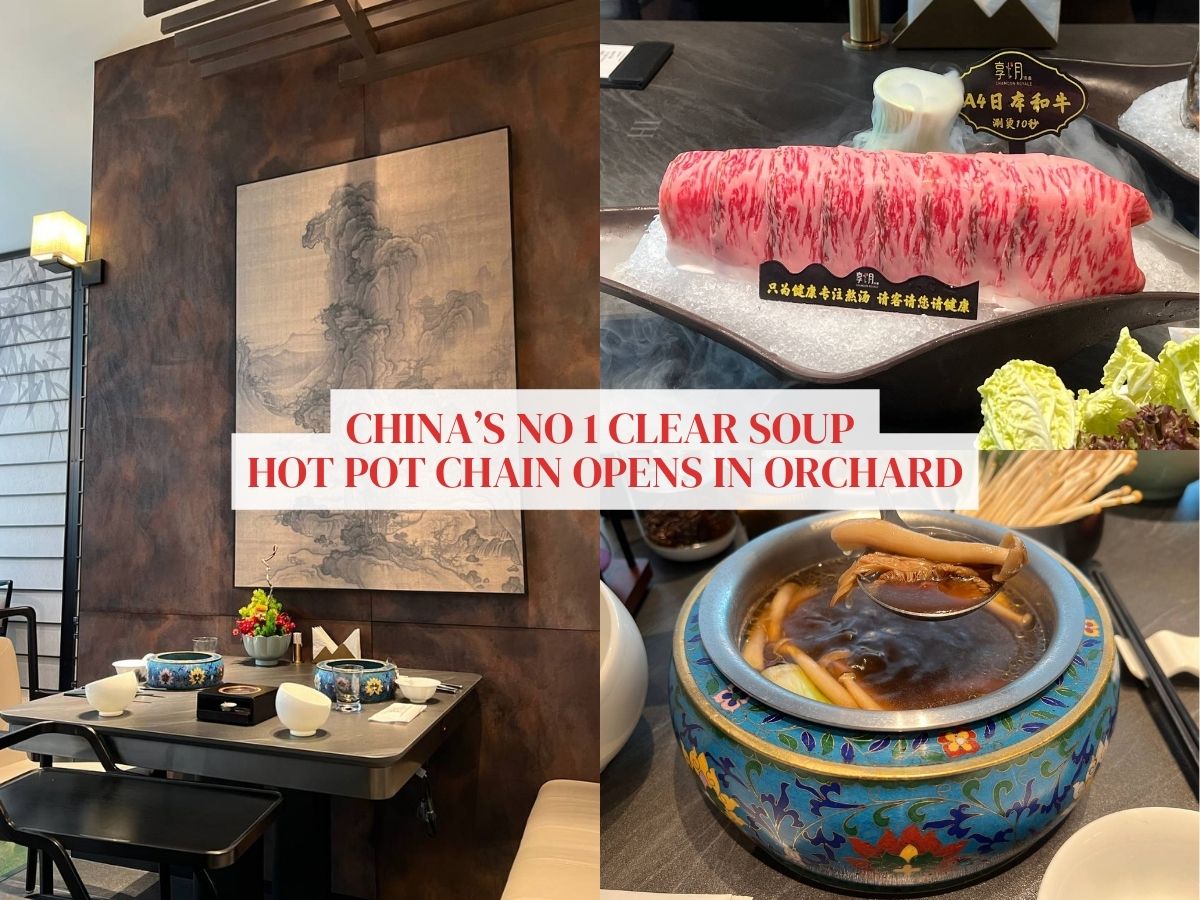
A recent new addition to Singapore’s hot pot scene is Chamoon Hot Pot, a well-established restaurant brand from China. After more than 30 outlets across the country, it finally opened its first outlet in Singapore in Orchard on September 16.
What to expect at Chamoon Hot Pot

You may be wondering: What sets Chamoon Hot Pot apart from other hotpot brands?
Its hotpots are served in individual portions, so that everybody can enjoy their own pot and works great for solo dining, too.
But its main draw is its healthy, clear soups, such as its matsutake mushroom broth, which incorporates not just matsutake mushrooms, but also a blend of 15 other mushrooms and fungi.
Chamoon plays up the nourishing and healthy quality of its soups, where many other hotpot chains tend towards sodium-rich and sometimes oily broths.
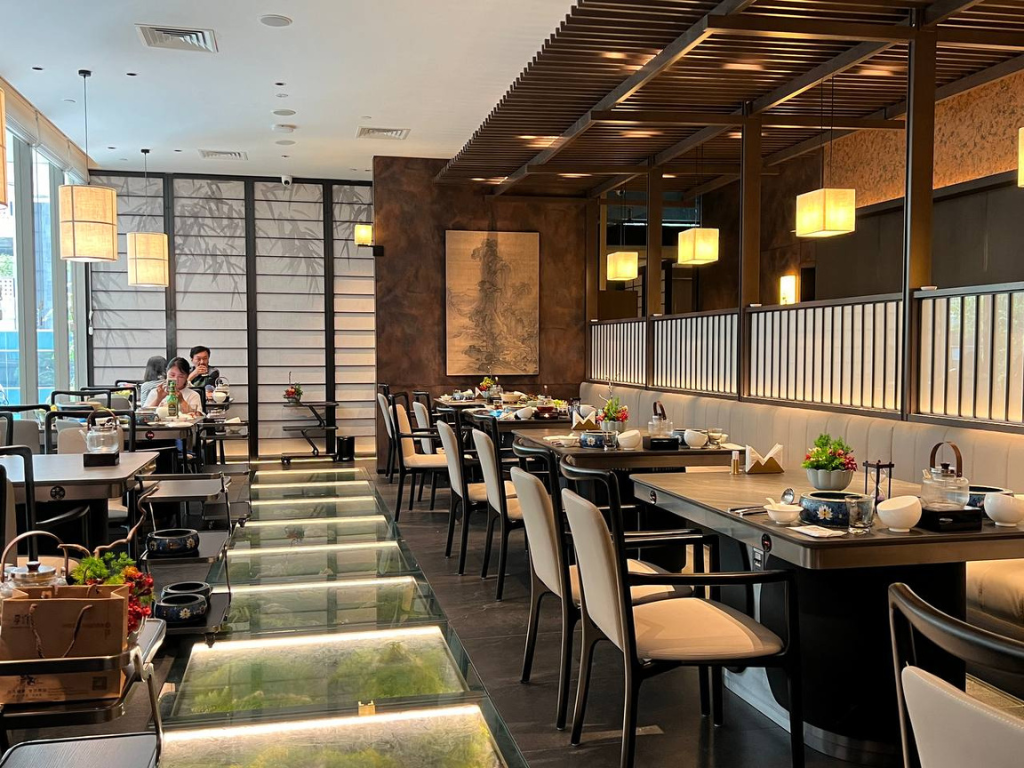
The 90-seater restaurant’s serene dining atmosphere also makes it appealing for business and family gatherings, but is clearly catered towards a more upmarket crowd.
There are four private rooms available, making it an ideal dining spot for special occasions and formal dinners.
Food at Chamoon Hot Pot

We tried the tiger prawns, abalone, and premium beef set for two (S$149/diner). I tried the truffle based matsutake mushroom broth, while my companion had the beauty-enhancing papaya tomato broth.
There are four other options, though: Bamboo fungus, the Singapore-exclusive mala, true morel mushrooms, and cordyceps mushrooms.
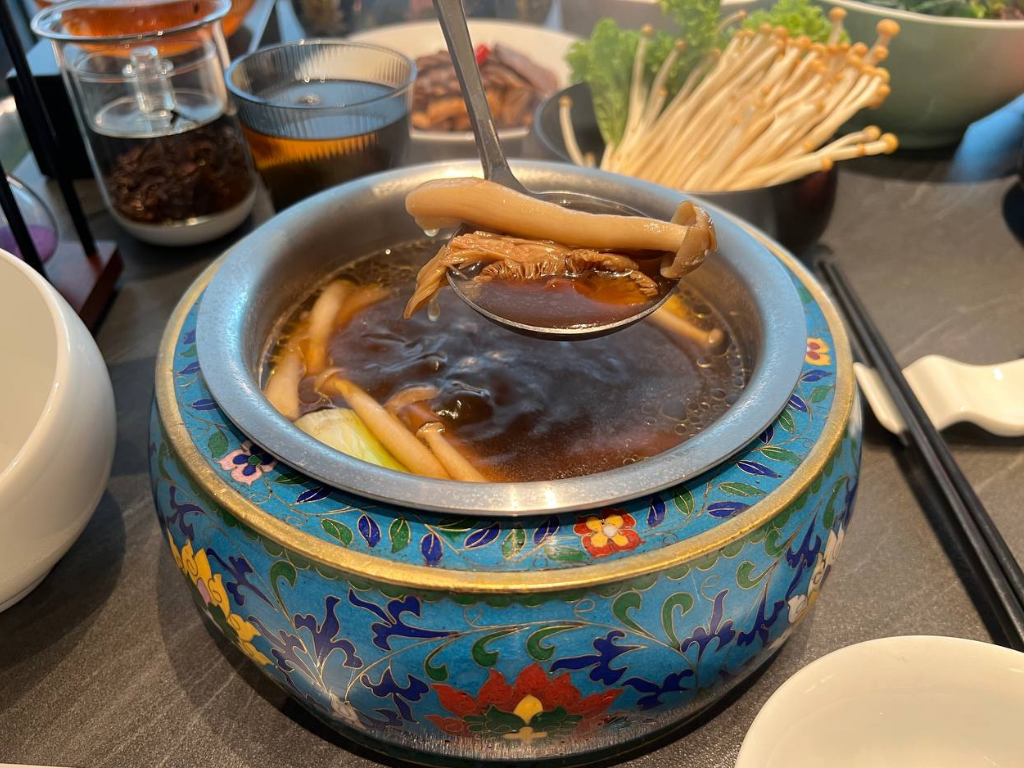
The truffle based matsutake mushroom is Chamoon Hot Pot’s signature soup base and is a must-try.
When it arrived at our table, it had an intriguing, earthy aroma, with a light, yet flavourful kick in each sip. This one is for mushroom lovers, or those who prefer their flavours more subtle and nuanced. Each bowl comes with a blue floral porcelain holder, which protects diners from touching the hot metal surface and is kept hot, thanks to a heating element built into the table.
We started with the seafood: Fresh five-head abalone and tiger prawns. The set also comes with Norwegian salmon sashimi, too.
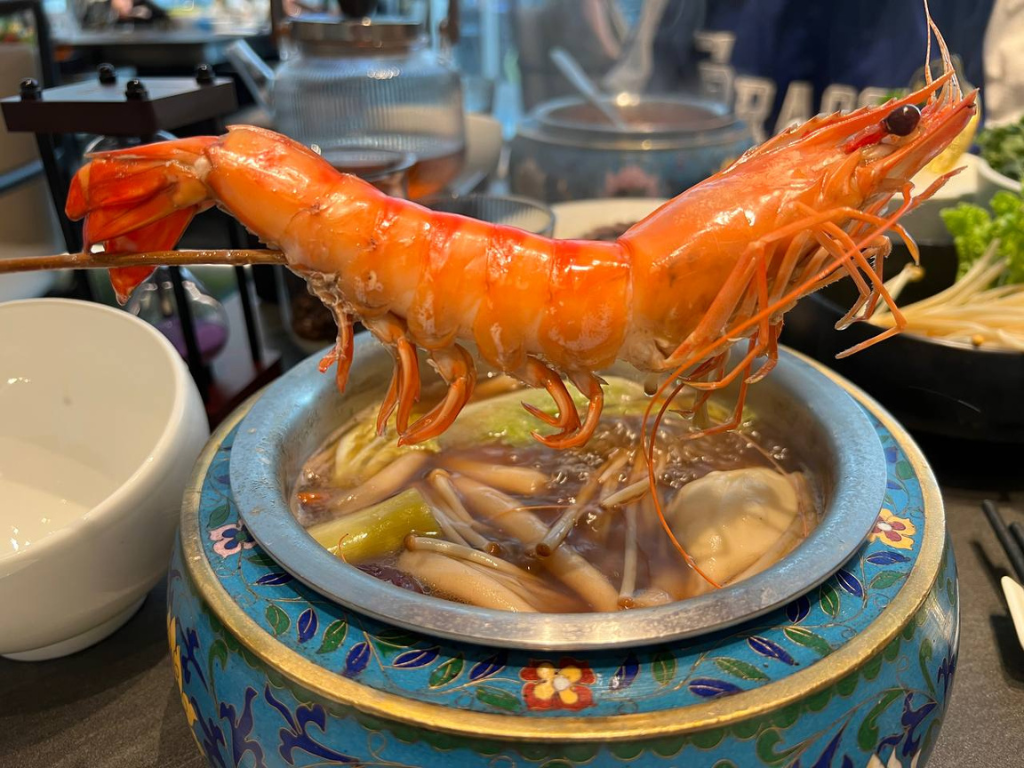
The tiger prawns were hands-down the best of the lot — they were fresh, plump and had a nice bite, after being simmered in the broth.
Meanwhile, we expected the abalone, while generously sized and chewy, to have more flavour.

By contrast, the meat offerings were a standout. Of these, the A4 Japanese wagyu was the clear winner — the meat was lush and retained its buttery, melt-in-your mouth texture after being gently cooked in the broth.
The Hokkaido iberico pork is a leaner option, but still impressed us with its succulent texture.
The set also includes matsutake (vegetable & mushroom) dumplings and an assortment of mushrooms and vegetables for added greens in your hotpot.
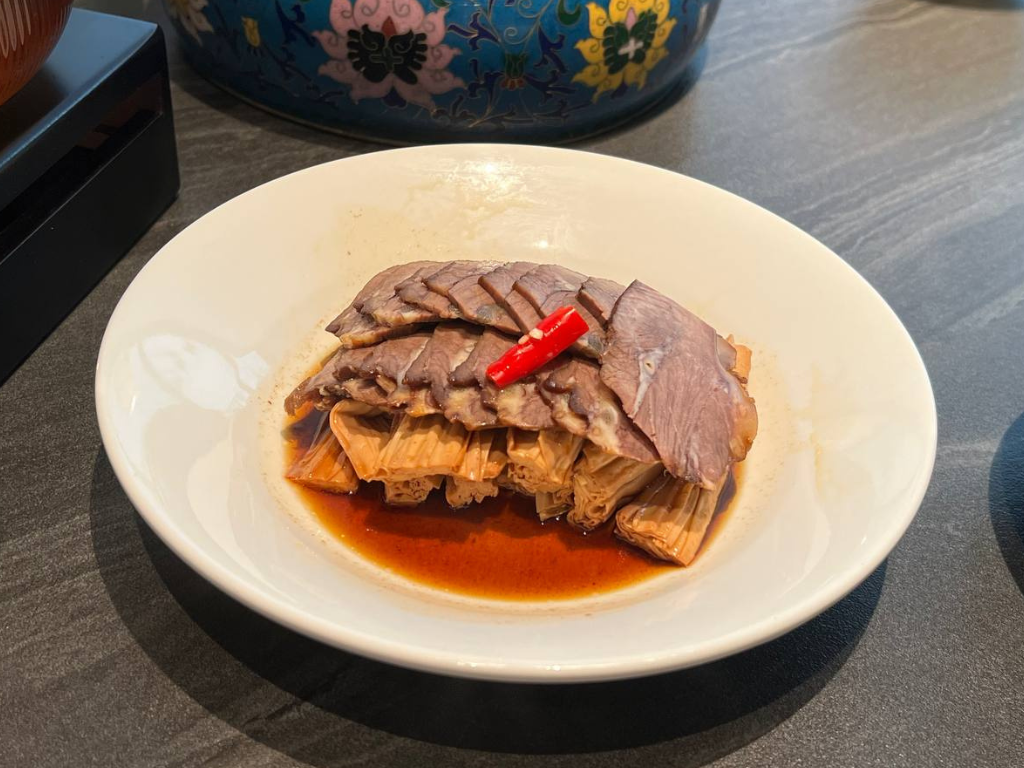
There’s also a braised delicacies platter, featuring cuts of beef and tofu skin, as a side dish. And for desserts, we wrapped the meal on a refreshing note, with housemade yoghurt, fruit and Chinese tea.
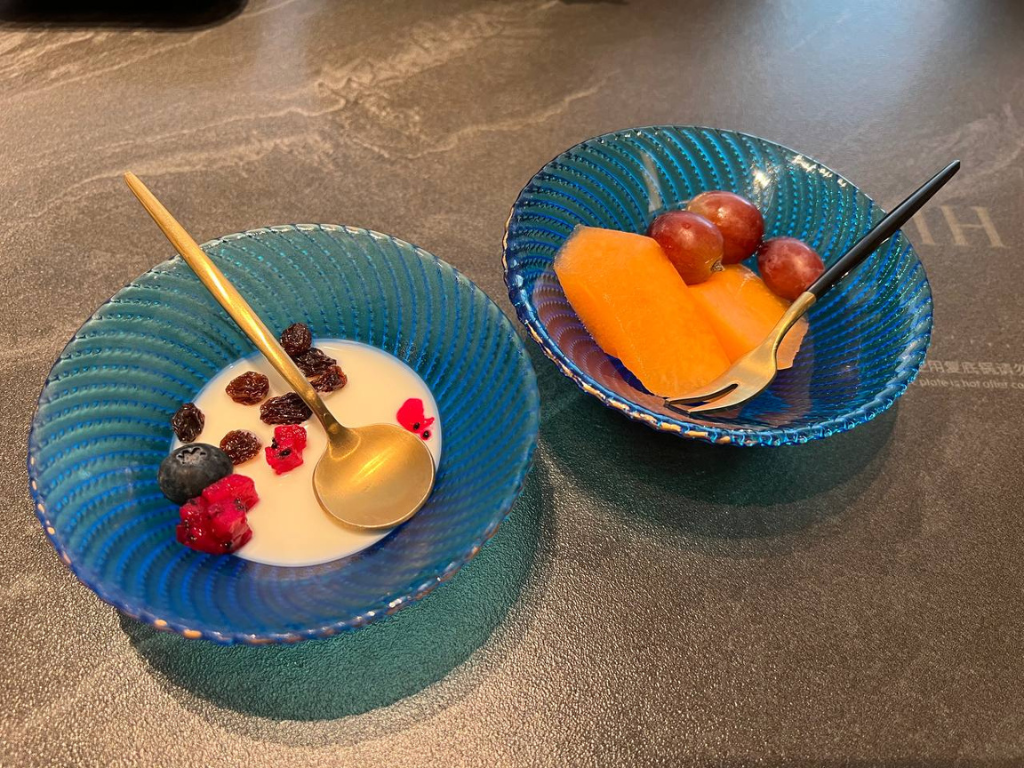
While Chamoon’s meals come at a steeper price point than many hotpot joints, its ingredients are premium and fairly fresh. If you’re curious about clear soup bases or looking to celebrate a special occasion, it’s worth a shot.
Chamoon’s opening deals
Until Oct 24, Chamoon Hot Pot Singapore running these deals to celebrate its launch! You can enjoy its premium hotpot set meal (worth S$98 per diner) at the following discounts, depending on when you pop by:
- 40% off from Oct 4 to Oct 10
- 30% off from Oct 11 to Oct 17
- 20% off from Oct 18 to Oct 24
Do note that each table must have a minimum of two diners and a maximum dining time of 90 minutes.
This was a hosted tasting.
For the latest eats, read about izakaya with Japanese hotplate Nikutosake at Paya Lebar and Chinese ice cream and BBT brand BingXue at Yishun. Alternatively, check out the newest openings in Singapore here.
Do explore the new GrabFood Dine Out service for awesome deals.
You can also book a ride to Scotts Square to check out Chamoon Hot Pot.
Chamoon Hot Pot
Scotts Square, 03-01/02, 6 Scotts Road
Nearest MRT: Orchard
Open: Monday to Sunday (11am to 10pm)
Scotts Square, 03-01/02, 6 Scotts Road
Nearest MRT: Orchard
Open: Monday to Sunday (11am to 10pm)




